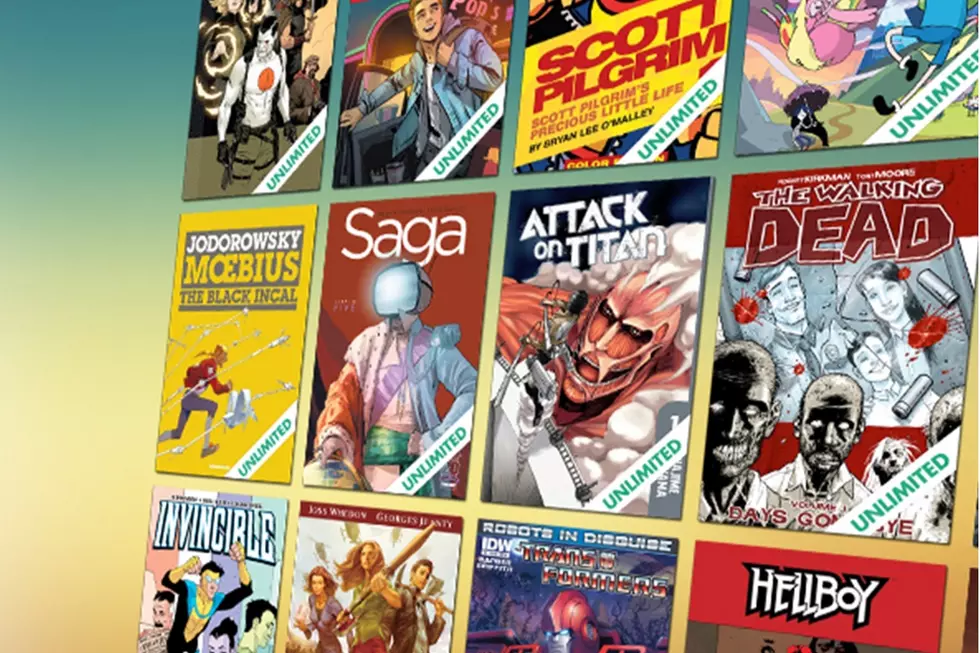
Archie Comics Cancels Kickstarter Campaign Amid Criticisms
Archie Comics has announced that it is canceling its Kickstarter campaign effective immediately. The campaign had come under fire from some, including myself, for a wide variety of reasons ranging from the company's financial status to the cost of backer rewards. The good news is that the company stands by the three new titles that the Kickstarter would have supported, Jughead, Betty & Veronica, and Life With Kevin --- but instead of funding them via crowdfunding, the books will be delayed until the publisher can afford to put them out.
In a statement released to CBR, Archie CEO Jon Goldwater stated:
While the response to these new titles has been amazing, the reaction to an established brand like Archie crowdfunding has not been. Though we saw this as an innovative, progressive and “outside-the-box” way to fund the accelerated schedule we wanted to produce these books, it became another conversation, leading us further away from the purpose of this whole campaign: to get these amazing books in the hands of fans faster than we could on our own. While we fully expected our goal to be funded, it was no longer about the books and how amazing they will be. We don’t want that. This is why we’re shutting the Kickstarter down today.
Archie has promised to be in contact with the folks who opted to back the campaign, and says they will receive a thank you gift for their support. Since the campaign has been cancelled, the people who backed the campaign will not be charged.
Kickstarter is a great promotional tool and a great way for independent creators and small press people to raise the funds necessary to produce work. But there are always questions raised when a person or company that is perceived to be successful uses crowdfunding for a project.
Multiple statements from Archie reps over the course of the last few days implied that the company didn't need the money per se; it just couldn't put out the books that it wanted to on the schedule that it preferred, and so the Kickstarter money would allow that to happen.
In this situation, the Archie Kickstarter is much like the Zach Braff Kickstarter for the movie Wish I Was Here, which was widely criticized as unnecessary, whereas the Fantagraphics Kickstarter would be more comparable to the campaign for the Veronica Mars movie, as both of those required the funds of backers to make a product happen. (Fantagraphics might have struggled to stay in business if its Kickstarter had failed.)
There's a fascinating interview up on the Comics Reporter where Tom Spurgeon spoke with Jon Goldwater about the project, which ended with this exchange:
SPURGEON: Granted, Archie is not DC or Marvel -- you're not Fantagraphics or Drawn and Quarterly, either. You're surely not Youth In Decline or AdHouse. Is "scrappy" and generally in need of help to publish the best terms to describe a company that has multiple paid staffers, outside consultants, and multiple licensing deals?
GOLDWATER: I think the term is relative, to be honest. And if you don't see us that way, that's completely fine. The point we're trying to make is more about the perception of Archie, because it's been around so long, is on the same level of corporate money DC or Marvel have. We aren't on that level. We are "scrappy" in that context. That's why we used that phrase.
This was my complaint about the Archie Kickstarter, ultimately. You don't get to have tons of licensing deals, huge brand recognition, a bunch of employees, a deal with Target and Walmart, and get to call yourself the "little guy" or "scrappy" in an industry where many publishers can barely get product out or get to conventions.
I'm absolutely biased, as the owner of a small publisher, but the fact remains that Archie's business model and success mean that the way the Kickstarter was framed came off as insincere at best. Of course the publisher is not Marvel or DC, but then neither is anyone else who's publishing comics.
Goldwater also told CBR:
The conversation, at least in some circles, was no longer about funding these great new launches. Once that happened, we decided it was time to stop. While we don’t mind putting ourselves under the microscope or answering questions, the creators involved didn’t deserve that level of negative attention. Though we fully expected to get funded, we felt it was time to step back.
In a way, this is reminiscent of Boom's #ComicsForward campaign. Once something is out in the world, for better or worse, you can't control how people receive your message. Doing something as public as a Kickstarter always leaves a person or company open to criticism, which is one of the most nerve-wracking parts of the process.
It's unfortunate that the people who probably suffer most from this cancellation are the creators, who will see delays on their books, but hopefully will still get paid well for their efforts. I don't know that the creators involved received any negative attention, as Goldwater stated --- any criticism seemed to be aimed at the company rather than the creators. The one exception seemed to be Adam Hughes, as there were concerns about Hughes drawing classic characters like Betty and Veronica in his trademark sexy style. Still, the negative effects for the creators seem to be more in the cancellation than in the reception to the Kickstarter.
Publishers who try to use Kickstarter as an easy way to get money are going to be disappointed --- it's a tool that at very least requires that the person or company running the Kickstarter be able to demonstrate that it needs the money to make something happen. Archie Comics failed to do that. It's unfortunate that it felt the need to pull the Kickstarter due to criticism, but a lot of that criticism was warranted. Comics is a hard business, as everyone working in it knows.
More From ComicsAlliance


![I Want To Make This A Performance: Grant Morrison Discusses His Plans For ‘Heavy Metal’ [Interview]](http://townsquare.media/site/622/files/2015/08/CA_MorrisonMetal.jpg?w=980&q=75)



![Sith Happens: Gillen and Aaron Talk Up ‘Vader Down’ [Interview]](http://townsquare.media/site/622/files/2015/07/Star_Wars_Vader_Down-feat.jpg?w=980&q=75)
![She Has A New Hat: North, Henderson and Moss Talk the New ‘Unbeatable Squirrel Girl’ #1 [Exclusive]](http://townsquare.media/site/622/files/2015/07/SQGIRL-feat1.jpg?w=980&q=75)

